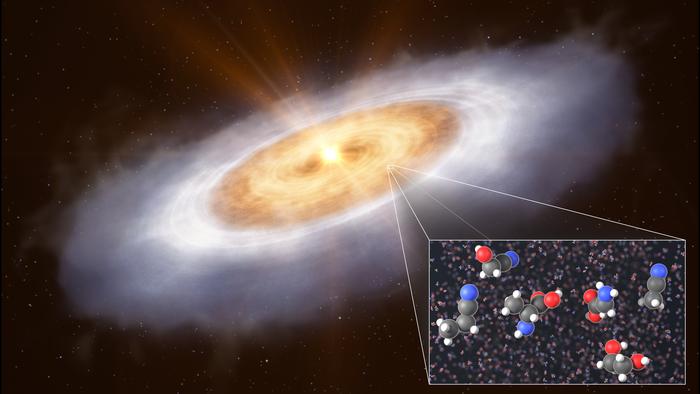
Building blocks of life may be far more common in space than we thought, study claims
Complex organic molecules found floating around a distant protostar could mean that space is far richer in life's precursors than scientists assumed.
Astronomers have discovered key components to life's building blocks swirling around a remote baby star, hinting that the stuff of life is far more prevalent throughout the universe than once thought.
The material, discovered circling the protostar V883 Orionis 1,300 light-years from Earth in the constellation Orion, consists of 17 complex organic molecules that include ethylene glycol and glycolonitrile — precursors to components found in DNA and RNA.
The finding, published July 23 in the The Astrophysical Journal Letters, could prompt scientists to rethink just how common the chemical progenitors to life are. Though similar compounds have been discovered elsewhere in space, astronomers previously assumed that much of these would be destroyed by the violent births of stars, leaving life's seeds scattered around only the rare planetary systems capable of reproducing them.
"Now it appears the opposite is true," study co-author Kamber Schwarz, an astrochemist at the Max Planck Institute for Astronomy in Heidelberg, Germany, said in a statement. "Our results suggest that protoplanetary discs inherit complex molecules from earlier stages, and the formation of complex molecules can continue during the protoplanetary disc stage."














